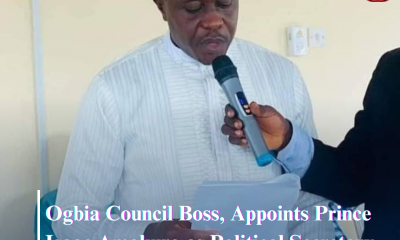Business
In one month, Nigeria loses N38bn to subsidy, oil theft, pipeline repairs

TRACKING>>Nigeria has continued to suffer value over its refusal to refurbish its moribund refineries and inability to effectively police its oil and gas assets, as data obtained on Tuesday, from the Nigerian National Petroleum Corporation, NNPC, revealed that the country lost N38.26 billion in November 2019, to fuel subsidy, products theft and unending pipeline repairs.
The NNPC, in its Monthly Financial and Operations Report for November 2019, disclosed that the amount lost to subsidy, petroleum products theft and pipeline repairs, represented 47.4 per cent of the N80.72 billion remitted by the corporation to the Federation Account Allocation Committee, FAAC from the domestic sale of crude oil and gas.
Specifically, the NNPC report noted that losses to these items rose by 9.85 per cent from N34.83 billion lost in the month of October 2019.
Giving a breakdown of the losses in November, the NNPC stated that it incurred N33.19 billion as under-recovery, otherwise known as subsidy for Premium Motor Spirit, PMS; while N88.97 million was lost through petroleum products thefts.
In addition, the report stated that the NNPC spent N4.987 billion on pipeline repairs and management cost.
In the previous month, under-recovery gulped N29.31 billion; N659.47 million worth of petroleum products were stolen, while pipeline repairs and management cost the country N4.86 billion.
On the other hand, the country earned N173.8 billion and N5.78 billion from the domestic sale of crude oil and gas respectively in November 2019; while total remittances stood at N217.84 billion.
From total remittance, the NNPC said it expended N98.86 billion for Joint Venture cost recovery, while it transferred N80.72 billion to FAAC in the period under review.
The NNPC said, “In November 2019, NNPC remitted the sum of N179.58 Billion to the Federation Account Allocation Committee (FAAC). From November 2018 to November 2019, total NNPC remittances to FAAC is N1.587 trillion; out of which Federation and JV received the sum of N747.69 billion and N838.87 billion respectively.”
Sabotage threatening oil output increase — NNRC
Furthermore, the Nigeria Natural Resource Charter, NNRC, in its 2019 Benchmarking Exercise Report, BER, released over the weekend, noted that increased volume of crude oil and gas production in Nigeria was being threatened by sabotage of oil pipelines by members of oil-producing communities.
According to the report, in July 2019, the NNPC reported a record high of 228 pulverised points, representing a 115 per cent increase from the 106 vandalised points recorded in the previous month.
It said, “This suggests that the challenges faced by host communities are yet to be effectively addressed. Also, domestic refining capacity has deteriorated over the years. In some months, none of the refineries processed any crude oil. In 2018, average capacity utilization, ACU, was 8.02 per cent, with zero per cent capacity utilization, CU, recorded in some months. ACU for the first seven months of 2019 stood at 3.68 per cent. In summary, domestic refining capacity worsened between 2017 and 2019.”
The NNRC disclosed that achieving self-sufficiency in the domestic supply of refined petroleum cannot be over-emphasised, especially as this is crucial to saving scarce government revenue, which can then be channelled to other productive sectors of the economy, in addition to saving millions of dollars in keeping imported petroleum products at affordable levels through subsidies.
According to the NNRC report, the fact that the refinery capacity utilization had worsened rather than improved within the period under review suggested that the specific objectives outlined in policy documents were wrongly conceived to begin with or may have been abandoned.
It added that, ”More recently, in May 2019, the report of an investigation by the House of Representatives into oil and gas contracts involving the NNPC/ National Petroleum Investment Management Services (NAPIMS) and oil operating firms was made available to the public. According to the report of the House Committee on Gas, the contracts (OML 53 Upgrade 1, Obite-Ubeta-Rumiji pipeline, and northern option pipeline projects) under review violated provisions of the Procurement Act, contained unapproved cost overruns, violated rules on conflict of interest, and showed characteristics of negligence by the NNPC.
“Sanctions were consequently recommended to the executive arm of government for implementation. The sanctions include the refund of $592 million dollars to the Federal Government by Total Exploration and Production Nigeria, and another $1 million dollars by three top staff of NNPC/NAPIMS responsible for managing the project.
“Further investigations on the oil operating firm, as well as staff of the NNPC/NAPIMS, who were responsible for overseeing the contract, were also recommended by the House of Representatives. These recommendations were transmitted to the executive arm of government for implementation.
“The above notwithstanding, in other cases, action to enforce recommendations by the National Assembly appear to be absent or weak. The former President and Vice-President of the country, found guilty of ignoring due process and diverting/mismanaging public funds (respectively) by the Senate in the PTDF probe of 2007, seem to have eluded any sanctions.”
The 2014 investigation of missing funds in the accounts of the NNPC based on allegations by the former governor of CBN resulted in a forensic audit. The forensic audit revealed that the missing funds were US$ 1.48 billion rather than the US$ 49.8 billion as stated in the former governor’s initial allegations. The NNPC was instructed to refund the amount, but there is no publicly available evidence of sanctions against the NNPC officials who were responsible for the missing funds in the first place.
On several occasions, the NNPC has been accused of mismanaging revenue or under-remitting to the Federation Account, as seen by the examples in the tables above. The many investigative committees by the legislature have not stopped the corporation from continuing such practices. That the NNPC Act has been cited as an enabler of such behaviour has not led to the amendments of the lax provisions contained in the act by the legislature either. Moreover, where recommendations by the legislature were ignored, researchers could not find any record showing 57
NIGERIA NATURAL RESOURCE CHARTER: 2019 BENCHMARKING EXERCISE REPORT
The deployment of sanctions against enforcement institutions for not acting on the recommendations.
-

 News3 days ago
News3 days agoFamily, Friends Celebrate Jailed Former Deputy Senate President, Ike Ekweremadu’s Birthday
-

 Niger Delta6 days ago
Niger Delta6 days agoNiger Delta Stakeholders Accuse Olu of Warri and PINL Management of Dishonesty Over Terminated Pipeline Contract
-

 Politics3 days ago
Politics3 days agoPROPHESY TO PRESIDENT BOLA AHMED TINUBU ABOUT 2027
-

 Politics7 days ago
Politics7 days agoOgbia Council Boss, Appoints Prince Isaac Amakuro as Political Secretary
-

 Politics7 days ago
Politics7 days agoRivers’ crisis: Timi Frank to TInubu, APC: Wike’s illegal impeachment plot against Fubara distabilze your administration
-

 News7 days ago
News7 days agoBaraza executes court order, removes properties from Becky father’s residence
-

 Business3 days ago
Business3 days agoBaraza: Bribena pleads for understanding, highlights solutions to organization’s problems
-

 Business6 days ago
Business6 days agoWema Bank Unveils CoopHub, Nigeria’s First Digital Platform for Cooperative Societies








